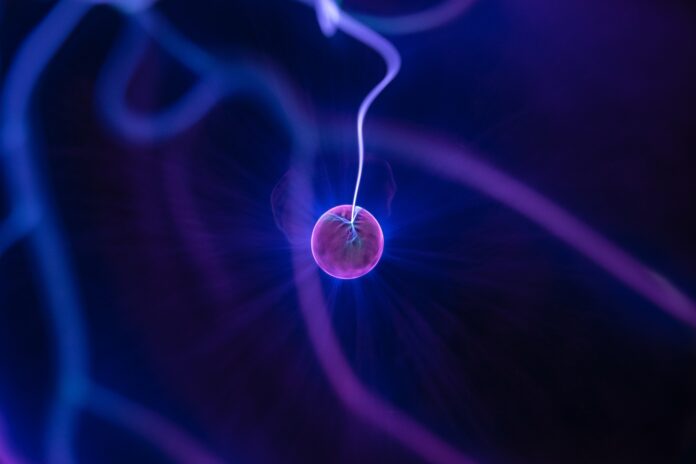Biomolecules, also known as biological molecules or macromolecules, are the essential building blocks of life. They are organic molecules that play crucial roles in various biological processes, such as cellular structure, energy storage, information transfer, and enzymatic reactions. Biomolecules are diverse in nature, ranging from small molecules like amino acids and nucleotides to large complex structures like proteins and nucleic acids. The study of biomolecules is fundamental to understanding the intricate workings of living organisms and their intricate biochemical pathways.
Biomolecules are characterized by their composition of carbon atoms, although other elements such as hydrogen, oxygen, nitrogen, phosphorus, and sulfur are also commonly present. These molecules are formed through covalent bonding, where atoms share electrons to form stable molecular structures. The unique arrangement of atoms and functional groups within biomolecules gives rise to their specific properties and functions.
There are four major types of biomolecules found in living organisms: proteins, carbohydrates, lipids, and nucleic acids. Each of these biomolecule types serves distinct roles and contributes to the overall functionality of living systems. Let’s delve into each of these biomolecules and explore their significance in more detail:
1. Proteins:
Proteins are incredibly versatile and vital biomolecules that perform numerous functions within cells. They are composed of long chains of amino acids linked together by peptide bonds. Proteins play crucial roles as enzymes, structural components, transporters, receptors, antibodies, and hormones. Enzymes, in particular, are proteins that catalyze biochemical reactions, facilitating various metabolic processes necessary for life. The specific sequence and arrangement of amino acids within a protein determine its three-dimensional structure, which ultimately governs its function.
2. Carbohydrates:
Carbohydrates, often referred to as sugars, are essential biomolecules that serve as a primary source of energy for living organisms. They are composed of carbon, hydrogen, and oxygen atoms and are classified as monosaccharides, disaccharides, or polysaccharides based on their molecular size. Monosaccharides, such as glucose and fructose, are single sugar units. Disaccharides, such as sucrose and lactose, are formed by the linkage of two monosaccharides. Polysaccharides, such as starch and cellulose, consist of long chains of monosaccharides and serve as energy storage molecules (starch) or structural components (cellulose).
3. Lipids:
Lipids are hydrophobic biomolecules that play critical roles in energy storage, insulation, and cell membrane structure. They are composed of fatty acids and glycerol. Lipids are diverse in structure, including triglycerides (fats and oils), phospholipids, steroids, and waxes. Triglycerides store energy in adipose tissue and are broken down during metabolic processes to release energy. Phospholipids are major components of cell membranes, providing a lipid bilayer that separates the cell’s internal environment from the external environment.
4. Nucleic Acids:
Nucleic acids are biomolecules that store and transmit genetic information. They are composed of nucleotides, which consist of a sugar molecule (ribose or deoxyribose), a phosphate group, and a nitrogenous base (adenine, cytosine, guanine, or thymine/uracil). There are two types of nucleic acids: DNA (deoxyribonucleic acid) and RNA (ribonucleic acid). DNA carries the genetic instructions that determine an organism’s traits, while RNA plays a crucial role in protein synthesis. The sequence of nucleotides in DNA and RNA molecules contains the information necessary for the synthesis of proteins and the regulation of cellular processes.
Biomolecules are the foundation of life, providing the structural and functional components necessary for the existence and survival of living organisms. Proteins, carbohydrates, lipids, and nucleic acids are the four major types of biomolecules, each with its unique properties and functions. Proteins are versatile molecules involved in enzymatic reactions, structural support, and various other cellular processes. Carbohydrates serve as a primary source of energy and can also function as structural components. Lipids have diverse roles, including energy storage and cell membrane structure. Nucleic acids store and transmit genetic information, guiding the synthesis of proteins and regulating cellular processes.
Furthermore, the study of biomolecules allows researchers to delve deeper into the molecular basis of diseases and develop targeted therapies. Understanding the structure and function of proteins, for example, is essential in the design of drugs that can specifically interact with and modulate protein activity, providing potential treatments for various disorders. By elucidating the role of biomolecules in disease pathways, scientists can identify biomarkers for early detection, develop diagnostic tools, and design therapeutic interventions.
Moreover, biomolecules have significant implications in the field of biotechnology. Through genetic engineering and manipulation of nucleic acids, scientists can modify the genetic makeup of organisms to enhance desired traits or produce valuable proteins on a large scale. Recombinant DNA technology, which involves the insertion of specific genes into host organisms, has revolutionized the production of pharmaceuticals, such as insulin and vaccines. This manipulation of biomolecules opens up avenues for advancements in agriculture, environmental remediation, and industrial processes.
In addition to their practical applications, biomolecules offer insights into the evolutionary history of life on Earth. By comparing the sequences and structures of biomolecules across different species, scientists can infer evolutionary relationships and trace the origins of organisms. For example, studying the similarities and differences in DNA sequences between humans and other species has provided evidence for our common ancestry with other primates. The analysis of biomolecules can also shed light on ancient organisms and extinct species through the examination of preserved biomolecules in fossils.
While the four major types of biomolecules—proteins, carbohydrates, lipids, and nucleic acids—are crucial, it is important to note that they often work together in complex biological systems. For instance, lipids and proteins collaborate in the formation of cellular membranes, which regulate the flow of molecules in and out of cells. Carbohydrates can be attached to proteins and lipids, forming glycoproteins and glycolipids, respectively, which are involved in cell recognition and signaling processes. This interconnectedness emphasizes the interdisciplinary nature of studying biomolecules and the need to understand their interplay within living systems.
In conclusion, biomolecules are the fundamental building blocks of life, playing essential roles in the structure, function, and regulation of biological processes. Proteins, carbohydrates, lipids, and nucleic acids are the key biomolecule types, each contributing to specific functions necessary for the existence of living organisms. Through the study of biomolecules, scientists gain insights into the complexities of life, develop therapeutic strategies, advance biotechnology, and unravel the evolutionary history of living organisms. The understanding of biomolecules is a cornerstone of modern biology and has far-reaching implications for fields ranging from medicine to environmental science, shaping our understanding of life itself.

















